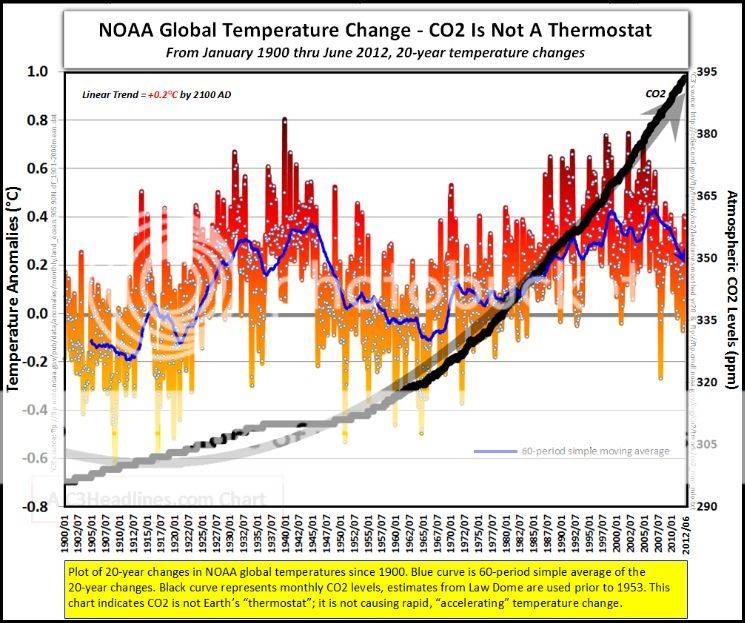Iceweasel
Diamond Member
Wikipedia is a joke. Like you.Like I said, if you had facts you wouldn't need a consenus.
The fact that better than 97% of the world's climate scientists, familiar with the tens of thousands of peer reviewed studies on the subject, accept the IPCC's central position: that human activities (CO2 emissions and deforestation) are the primary cause of the warming observed to have taken place over the last 150 years and to an even greater extent over the last 50.
Those are the facts.
Bullshit.
Think so? Then explain this: Scientific opinion on climate change - Wikipedia, the free encyclopedia



